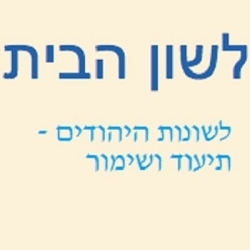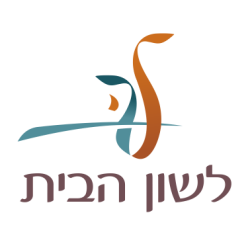When a Girl Was Born in Baghdad

The Preservation of Jewish Languages and Cultures in memory of Hayyim (Marani) Trabelsy


In memory of Saʿada Trabelsi who lived in Djerba, Tunisia most of his life
May these recordings, of ancestral traditions that were so dear to him, serve as commemoration of a great man

A. Then pray. The prayer begins. The entire day goes to prayer.
B. Why pray? What are you praying for?
A. We're not going out. We pray Shaḥarit (morning prayer).
B. What are you praying for? Why pray?
A. Why pray?! Yom Kippur!
B. What do you want? for what?
B. Why pray Yom Kippur?
A. Why Yom Kippur?
B. Yes. Why make this holiday?
A. Why do it? It's Yom Kippur. It is Yom Kippur… not from the Tora. It is probably called Kippur, by Him (God).
B. For God to cleanse us of wrongdoing.
C. Will atone for us. Will atone for us.
A. It is Yom Kippur, Yom Kippur, called from Mount Sinai. Isn't that so? Maybe a mistake? [...] Something else?
B. Yes. It said so in the Tora.
A. Yes. It is from the Tora, from Mount Sinai. Yom Kippur is accepted from Mount Sinai. Unlike other things - they were fixed by the wise. It is Yom Kippur from Mount Sinai.
B. But why? Why?
A. It's from Him (God).
B. To cleanse us of wrongdoings.
A. Yes. Yes. It's not about that. it's clear. Accepted with the Tora. Descended with the Tora, Kippur. Oh.
B. One day of prayer ...
A. After Shaḥarit, Neʿila (closing prayer) ... not Musaf (additional prayer). After Musaf – resting for an hour. Some company gather together to read Tehillim.
B. What is a company?
A. Company means a gathering of people – gathering together to read Tehillim. Society, company of people - gather. After the prayer, go their separate ways, go to rest for an hour. And some gather and sit down to read Tehillim.
B. Aha.
A. Then they call for Minḥa (afternoon prayer), remember that.
B. Yes. Yes.
A. Because the people are all gathered and separated. They call out to let everyone know – it is time for Minḥa.
B. Minḥa, Minḥa.
A. So they will come back. Be present.
B. Gather.
A. After Minḥa - Neʿila. After Neʿila – according to the day, they add readings of Seliḥoth.
B. Add after Neʿila?
A. What?
B. Continuing to read after Neʿila?
A. What?
B. Continuing to read after Neʿila?
A. After Neʿila, if you’re interested in Djerba's custom, they continue to read Seliḥoth. To add the sacred to the profane. After that - ʿAravit. After ʿAravit they prepare their candles and return home with them.
B. Yes.
A. Lit from today. They want to return home whilst the candles are still lit. They walk half a mile with them on.
B. On?
A. On! And whoever puts the candles off – does not enter the home until they light it back on. Remember that. Remember that! Hahaha and there are some who return home with the candles still lit.
B. Yes?!
A. We come in for dinner. After that we go out to bless the moon. It is a known custom. After the moon, we move the sukka.
B. Begin to build parts of the sukka.
A. We begin a bit with the sukka.
B. Why?
A. This is something. Why?! Applies to Corps. Always say it.
B. What is it?
A. I mean from mitzva (good deed) to mitzva. We do not stop. From mitzva to mitzva. We didn't eat a chicken and ...
B. And we stopped (laughing)

In memory of Mrs. Kuka Uzan Z"L, for the warm welcome and the willingness to share

A. Oh. The engagement? There are people who arrive in order to create a match for the bride. They are arraigning her marriage. The mother in law arrives and introduces them or […] if both of them show interest - they meet. […] If and when they show serious intentions, the mother in law arrives carrying a present.
B. You don't say present. You say -
A. Bring a present. A present. Yes. She offers her a necklace and sweets. During Hanukka she pays her respect, and offers her debla, makroudh and manikut for Hanukka. She also brings her a red handkerchief and something gold.
A. Aha.
B. Yes. During Hanukka. And Yom Kippur. When Yom Kippur ends, the family of the bride gives the groom a present.
A. Ah. Yes.
B. We were in Nabeul, to each his own.
A. All right.
B. Yes.
A. Did they write a ketuba?
B. Oh, ketuba. Some created something similar to that. My divorced sister in law, her father demanded to write in the ketuba that if someone retracts, his friend must pay such and such.
A. What is the name of this ketuba?
B. It is similar to the ketuba of engagement. But we have no part in it. Only the bride does, while the groom orders it.
A. Oh, you don't take part in it?
B. No, we don't. He is from Gafsa, and she was supposed to marry him.
A. Right.
B. This is how they do it in Gafsa.
A. Do what? Sell property?
B. Yes, they sell property to each other. And whomever regrets it, his friend has to pay for him. I don't know how much.
A. Do you also call it property?
B. Yes, we call it property. Later on, when the wedding takes place. I remember, during the night of the ḥenna, before my wedding day, rabbis came to the house and wrote a ketuba. Then, they took it somewhere else, so that they could read it on the night of the blessing.
A. Oh. On the night of the ḥenna they will write the…
B. Yes. I remember this from my personal experience. On the night of the ḥenna.
A. And… the ring
A. The ring is for the wedding night.
B. And what do they write in the ketuba?
A. They say it. They talk about giving money to such and such, as well as houseware. The bride gives money, the dowry, to the groom. She also gives all of the houseware.
B. Really?
A. Of course, the houseware. […] or she would at least give a mattress, her own bed and accessories for the bathtub and the laundry.
B. And what does [the groom] give?
A. He either buys or rents the house. He also buys the furniture. Whatever is needed.
B. Oh
A. And that is it. Later on, he does the everyday shopping. In the beginning, the bride gives the money.
B. She gives everything. And how long do they wait until…
A. Several months. And if God helps, and the young woman is lucky, a groom arrives […] and takes her without any money. This is a gift from God.
B. Hahaha
A. Is it true?